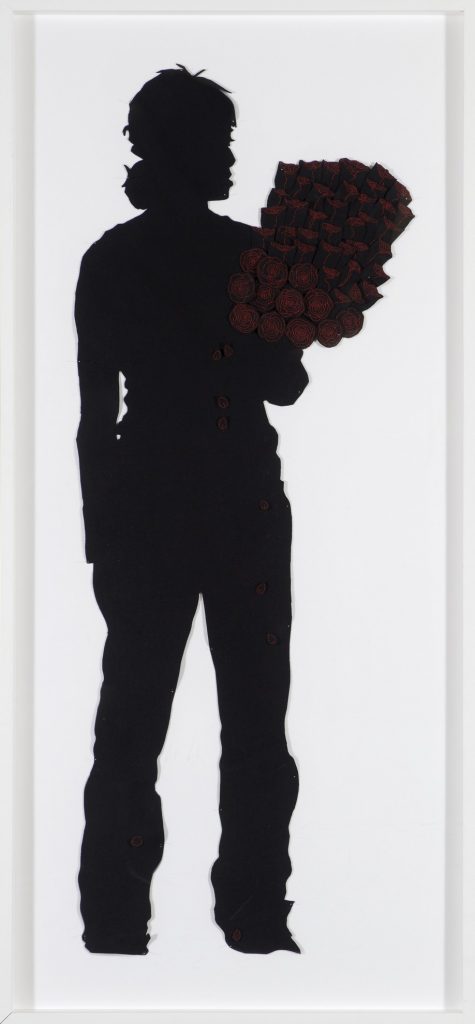Summary
Artist Sangeeta Sandrasegar spent her childhood growing up between Malaysia and Australia. She often works with paper cut-outs, creating tableaux that explore cultural ideas around sexuality, race and identity in contemporary society. The bicentenary of the abolition of the slave trade in America and her fascination with Joseph Conrad’s classic novel ‘Heart of Darkness’ led her to conceive of the series ‘The Shadow Class’, to which this work belongs. ‘The Shadow Class’ offers a typology of women who eke out a living by flogging flowers, rugs or DVDs to tourists. It is, she says, ‘is a project on contemporary slavery, and [its] myriad forms that exist today’.
‘Untitled (Flower Seller)’ is silhouette portrait in felt and cotton, and a striking counterbalance to the many other full-length, half-length and head portraits housed in the Art and Heritage Collection. Those more-often-than-not official portraits usually depict past lord mayors or other individuals who have enjoyed a relative amount of power and agency in their lives, time travellers who are now remembered through the historical record. Conversely, the identity of Sandrasegar’s figure is unknown – emphasised by the anonymity provided by the work’s medium – and her status, like other figures in ‘The Shadow Class’, is that of a disempowered worker in a developing country.
Such interventions into the portraiture are important in encouraging us to reconsider accounts of history, including a more critical consideration of the city’s official portraits. ‘Untitled (Flower Seller)’ was displayed in the exhibition ‘Good Looking’, curated by Phip Murray and held at the City Gallery from February to April 2013, and this entry draws heavily on Murray’s catalogue essay. Along with a small handful of other such interventions, Sandrasegar’s flower seller operated as a foil to the collection’s many official portraits displayed in the exhibition, the subjects of which are predominantly older men of European descent.
